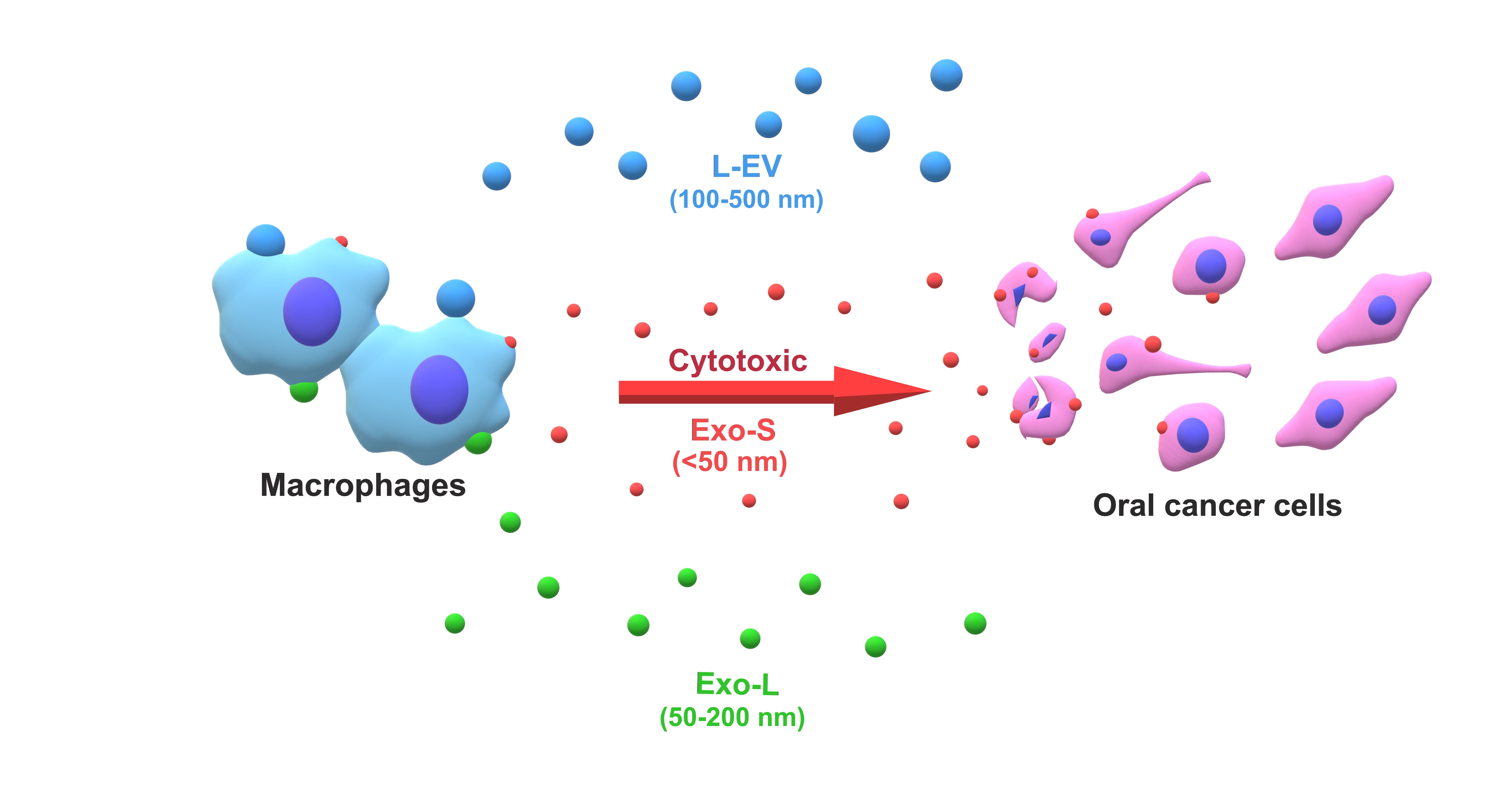Tumor-associated macrophages are a key component in the tumor microenvironment, secreting extracellular vesicles (EVs) such as exosomes and other various factors for intercellular communication. However, macrophage-derived EVs heterogeneity and their cytotoxicity to cancer cells has not been well understood. Here, we aimed to separately isolate various types of macro-phage-EVs by size exclusion chromatography (SEC) method and investigate EV transmission and cytotoxicity to oral cancer cells. For fluorescence-labeling of cellular and EV membranes, palmitoylation signal-fused GFP and tdTomato were expressed in THP-1 monocytic cells and HSC-3 oral cancer cells, respectively. We found that fluorescence-labeled EVs secreted by macrophages were highly transmissive to oral cancer cells than those from parental monocytic cells. In a co-culture system and conditioned medium (CM), a macrophage-secreted unidentified factor was cytotoxic to oral cancer cells. We fractionated macrophage-derived EVs by the SEC method and performed western blotting to characterize various EV types. Three fractions were characterized: small exosomes (EXO-S: < 50 nm) fraction containing HSP90α, HSP90β, CD63 (EV marker) and β-actin; large exosomes (EXO-L: 50-200 nm) fraction containing CD9 (EV marker) and HSP90β; large EVs (100-500 nm) fraction. Notably, the macrophage-derived small exosomes fraction was cytotoxic to oral cancer cells, while large exosomes and large EVs were not. There-fore, it was implicated that macrophage-derived small exosomes are cytotoxic with high trans-mission potential to cancer cells.

